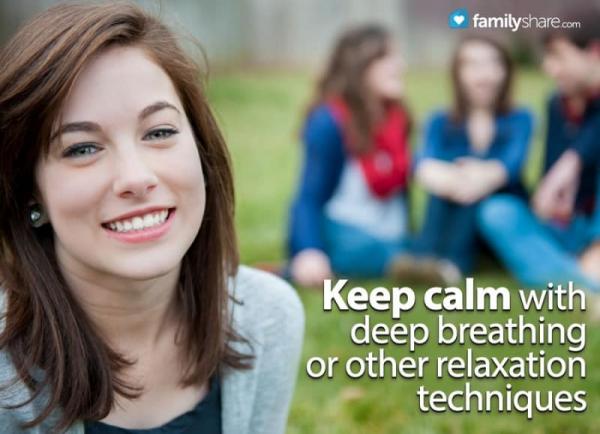
Social anxiety feels like feeling uncomfortable because of being judged, looked at negatively, or criticized by others or worrying about such experiences, whether in anticipation of, during, or following social events. You may experience physiological symptoms such as blushing, feeling faint, dry mouth, sweating or clammy skin, shaking, shortness of breath, or increased heart rate.
Here are some tips to help:
Identify triggers
One woman realized she was only triggered when she had to go to parties where she had to dress up. A man recognized he only became anxious at work when business meetings were in restaurants. She was able to give herself more time to prepare for dressy events, and an excuse to leave early if she needed. He was able to reschedule meetings for afternoons instead of at lunch time.
Think
The best way to get rid of negative or fearful thoughts is to challenge them. A special needs mom was able to more confidently advocate for her child without being intimidated by teachers after taking a class in the educational rights for her state. One dad was anxious about doing scouts with his son because he wasn't an outdoors kind of guy like some of the other dads. He came to the rescue when it was time to help them work on technology and music badges.
Practice
Exposure to what makes us anxious is one way to give ourselves experience overcoming such a challenge. One very shy woman practiced meeting one new person each week. A young man asked out a different girl each month, until asking girls for dates was a skill he had instead of something he feared.
Plan
Organizing your time and the layout of your day can work in your favor. One working mom knew she needed a break between meetings to recharge, instead of getting overwhelmed by people and demands when she scheduled meetings back to back. Another woman needed her meetings back to back in order to have the afternoon calm and quiet for independent projects. One man used his commute time to calm down with music; another used that time to get paperwork done without interruption.
Breathe
Concentrating on deep, slow breaths will help your body calm down. One mom was often anxious about other moms during her child's play dates. She found it helpful to breathe in for a count of four, hold it for a count of four, and breathe out for a count of four. At work, one man needed to relax in a more physical way, either going for a walk or doing breathing exercises that helped with muscle relaxation.
The first thing to do with social anxiety is identify patterns of fearful thoughts and challenge them with facts, while keeping calm with deep breathing or other relaxation techniques. Then practice new skills by exposing yourself to situations a little at a time, utilizing coping skills and organizing your day and time in ways that help you plan ahead for quiet time.

